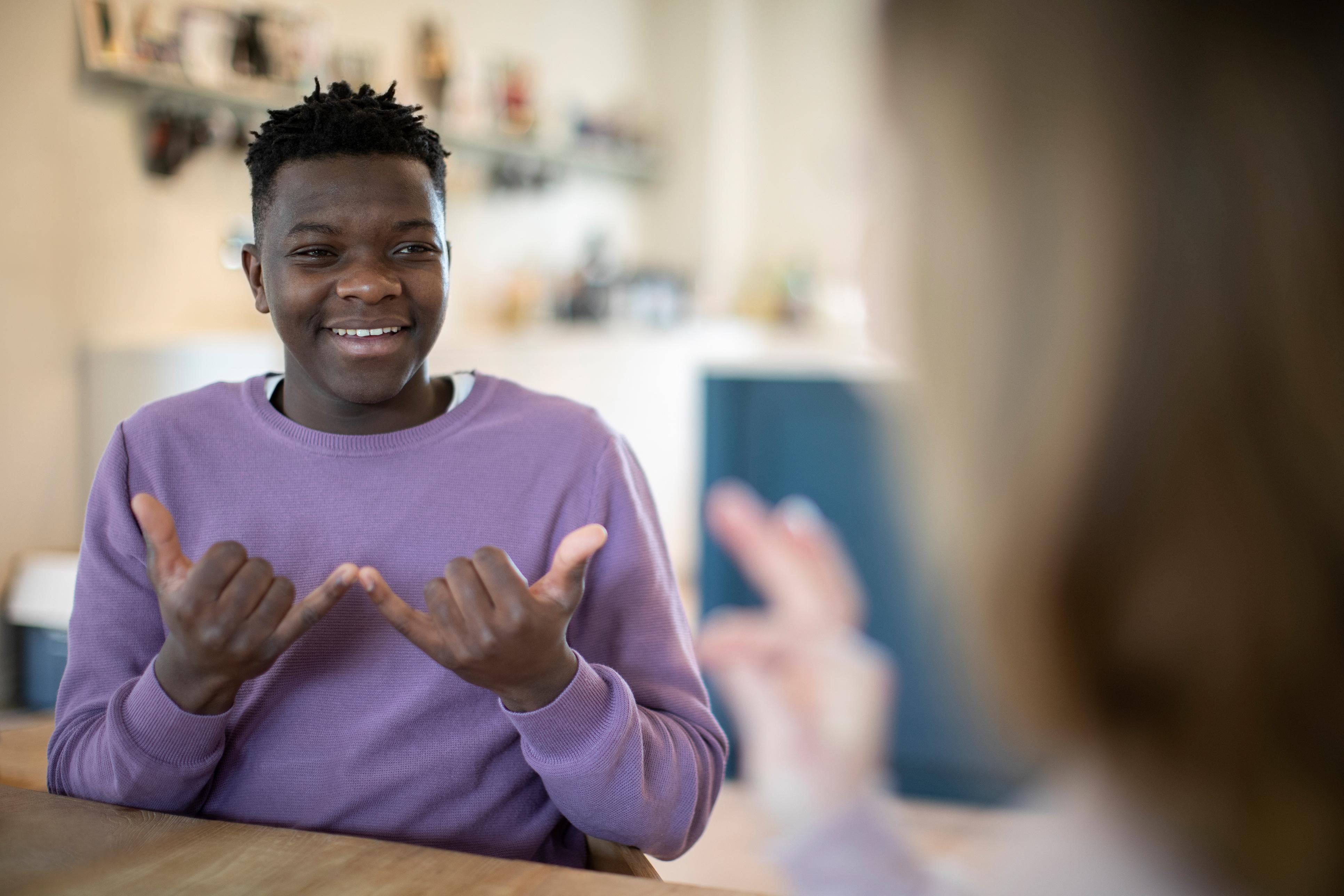Disability Rights and Heritable Genome Editing: Resources for Teaching and Learning

If you follow news about human germline editing — altering the genes and traits of future generations — you’re likely familiar with the name Denis Rebrikov. The Russian molecular biologist, who has ties to both research facilities and fertility clinics, has publicly declared his intention to become the second scientist to use CRISPR technology to alter the genomes of human embryos, establish pregnancies, and bring the resulting babies to term. While he originally said he planned to target the CCR5 gene (the same gene He Jiankui altered in twins Lulu and Nana) with the goal of establishing HIV resistance, Rebrikov said in his latest press appearances that he has “lined up” five couples with hereditary deafness who have agreed to let him try using CRISPR to prevent deafness in their future babies.
CGS has always maintained that heritable genome editing is unsafe and unnecessary; one of our primary reasons for speaking out against the use of this technology in humans is the potential it has to exacerbate social inequities, including by worsening ableism and discrimination toward people with disabilities. Rebrikov’s assertions clearly communicate the message that deafness is a condition so serious that it should be prevented even at the cost of using an experimental technology on humans. This perspective runs counter to the beliefs of many disability rights activists and advocates who believe that variation in ability—and the corresponding cultural differences and contributions—are important to the fabric of our society.
Disability rights advocates have been among the earliest and most vocal critics of human germline editing. Many thinkers and writers in this area highlight how a technology that enables the selection of “good” genes and “normal” traits can devalue the bodies and ultimately the lives of people with disabilities. Their concerns are grounded in histories of eugenic discrimination and abuse, notably the twentieth-century state-sponsored sterilization projects in dozens of U.S. states, and the Nazi campaigns to exterminate hundreds of thousands of disabled people.
Today, disability rights advocates remind us to ask whether scientific innovations like heritable gene editing are likely to create a future that respects or devalues difference and disability as a part of the human condition. In light of recent events, we are sharing a selection of resources on this topic to help further understanding of how ableism can distort narratives about biotechnologies. (You can find the complete body of CGS’ work on disability rights here.)
One resource comes from Founder and Director of the Disability Visibility Project Alice Wong. In this presentation for Medicine X (a project of Stanford Medicine), Wong—who has a progressive neuromuscular disability—explains that human genome modification raises questions that have profound implications for people with disabilities, such as, “Who has the power to decide which mutations warrant human gene editing and which are tolerable?”
Resisting Ableism: Disabled People and Human Gene Editing
Another useful resource for exploring why we must center the voices of people with disabilities when discussing human genome editing is our webinar titled “Disability Justice and Gene Editing: Exploring Multiple Perspectives.” This discussion features disability rights activists Anita Cameron and Mia Mingus, alongside sociologist and bioethicist Tom Shakespeare and feminist disability studies scholar Rosemarie Garland-Thomson.
Disability Justice and Gene Editing: Exploring Multiple Perspectives
Rosemarie Garland-Thomson further explores the implications of human genome editing in her September 2020 talk, "Biomedical Ethics and the Existential Threat to Persons with Disabilities."
Biomedical Ethics and the Existential Threat to Persons with Disabilities
Anita Cameron also wrote a related blog post that dives deeper into the issue of why germline editing needs to be a disability rights issue from her perspective as a Black woman with a disability.
Why I’m Speaking About Germline Editing as a Black Woman with a Disability
This article by Emily Beitiks of the Paul K. Longmore Institute on Disability offers a thoughtful analysis of how people with disabilities deepen and elevate conversations about human biotechnologies in ways that people without disabilities may not understand or be aware of.
5 Reasons Why We Need People with Disabilities in the CRISPR Debates
This article directly address Rebrikov’s plans and our concerns about how this news may negatively affect people with disabilities and hinder the disability rights movement.
Russia’s CRISPR "Deaf Babies": The Next Genome Editing Frontier?
In this interview, bioethics professor and disability rights scholar Jackie Leach Scully discusses Denis Rebrikov's plan to edit a hereditary mutation that leads to deafness in humans.
Illness or Identity? A Disability Rights Scholar Comments on the Plan to Use CRISPR to Prevent Deafness
This page summarizes and links to video of the discussions held at Future Past: Disability, Eugenics, & Brave New Worlds. This public symposium provided a rare opportunity for participants to engage with the historical and ongoing implications of eugenic ideologies and practices for people with disabilities. The resource includes voices from Center for Genetics and Society, the Paul K. Longmore Institute on Disability, Living Archives on Eugenics in Western Canada, and Facing History and Ourselves.
Future Past: Disability, Eugenics, & Brave New Worlds
Writer George Estreich’s 2018 book Fables and Futures grapples with the ways in which new biotechnologies grant us unprecedented power while raising questions about belonging. In this public discussion, Estreich points out we can’t assume which people, and which genetic variations, society will welcome in light of new biotech advances.
A Reading and Discussion with George Estreich
Finally, here are a few of our favorite articles from other sources:
- “Can We Cure Genetic Disease Without Slipping Into Eugenics?” by Nathaniel Comfort, The Nation
- “My ‘Orphan Disease’ Has Given Me a New Family” by Rosemarie Garland-Thomson, The New York Times
- “Please Don’t Edit Me Out” by Rebecca Cokley, The Washington Post
- “The Patients Who Don’t Want to be Cured,” by Sarah Zhang, The Atlantic
We hope you’ll take the time to watch, read, and share these resources.



